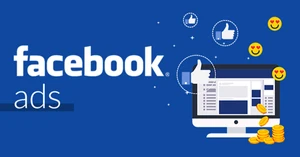What are Marketing Tools?
Marketing tools refer to the various resources that marketing professionals rely on to create, enhance, and promote their products and services. These tools encompass techniques, strategies, and materials, serving diverse purposes. For example, email marketing tools enable effective communication with a target audience through personalized email campaigns. Digital marketing platforms offer a range of resources for online advertising and promotion, adapting to the ever-changing digital landscape.
Additionally, marketing automation software and platforms play a crucial role in streamlining marketing tasks, managing customer interactions, and analyzing data to make informed decisions. Marketing communication tools facilitate meaningful connections with customers and prospects, while influencer marketing tools leverage individuals or entities' reach and influence to promote products and services.
What are the 4 Main Marketing Tools?
The four primary marketing tools, commonly known as the 4 Ps of marketing, are essential components of a successful marketing strategy;
- Advertising: Advertising entails paid communication methods employed to endorse products, services, or concepts. It involves several key decisions, including setting objectives, determining the budget, crafting the message, selecting the appropriate media channels (such as newspapers, television, or the internet), and timing the message's delivery.
- Sales Promotion: Sales promotion focuses on incentivizing short-term sales growth. It can target both consumers and the trade. Unlike advertising, which aims to communicate a message, sales promotion aims to create immediate incentives for purchasing. Consumer incentives may include samples, coupons, free trials, or demonstrations, while trade incentives often involve price reductions or free goods. The choice of promotional tools should align with the company's marketing objectives, target audience, budget, and competitive response.
- Public Relations: Public relations (PR) plays a crucial role in managing a company's interactions with various stakeholders, including customers, employees, and the public. PR activities involve handling press releases, supporting product publicity, maintaining the corporate image, addressing legislative matters, and guiding management on public issues. Marketing public relations (MPR) specifically focuses on supporting corporate and product branding efforts, building awareness, and generating positive media coverage. MPR can serve as a cost-efficient means to bolster a firm's standing and trustworthiness.
- Direct Marketing: Direct marketing involves establishing direct communication channels with customers or prospects, bypassing intermediaries. This approach can be used to deliver messages or services directly to individuals. Direct marketing has experienced significant growth, driven in part by the internet. It offers benefits such as time efficiency, personalization, and cost savings for companies. Various direct marketing channels include face-to-face selling, direct mail, catalog marketing, telemarketing, TV advertising, and kiosks.
Types of Marketing Tools
Marketing tools come in various forms to facilitate effective communication, customer engagement, and business growth. These tools serve as crucial components in an integrated marketing approach, tailored to connect with customers and nurture brand awareness. Below are various types of marketing tools that businesses employ;
- Marketing Tools for Social Media: Social media marketing instruments, such as blogging, tweeting, posting, sharing, networking, pinning, bookmarking, media sharing, and commenting on platforms like Twitter, Facebook, LinkedIn, Pinterest, Reddit, and YouTube, enable engaging online connections with customers. These cost-effective tools level the playing field for small businesses, offering the potential for high returns by fostering customer engagement.
- Marketing Tools for Instagram: Smartly.io is an automated Instagram marketing tool designed to optimize advertising campaigns. It generates various ad variations to identify the most effective approach, allowing businesses to create, modify, and measure social ad performance on Instagram.
- Marketing Tools for Lead Generation: Lead generation tools are software applications that streamline the process of finding and reaching potential customers. They automate the identification, contact, and qualification of prospects, increasing sales efficiency and saving valuable time.
- Marketing Tools for B2B Business: Salesforce, a renowned CRM platform, empowers B2B businesses to manage customer interactions effectively. It provides a comprehensive view of customers by consolidating data from multiple touchpoints, enabling businesses to better understand their clients and enhance their relationships.
- Marketing Tools for Promotion: Tangible marketing tools like brochures, business cards, press kits, websites, informational videos, and promotional merchandise play a crucial role in building brand awareness and conveying detailed information about products or services. These items, while increasing sales, also contribute to promoting brand identity, though the choice may be influenced by cost considerations.
Key Features of Marketing Tools
Marketing automation platforms offer a range of key features that empower businesses to optimize and streamline their marketing efforts. These features include;
- Email Marketing: Email marketing tools enable businesses to create, send, and manage email campaigns, allowing for personalized communication with their audience.
- Landing Pages and Forms: Landing page and form tools assist in creating customized landing pages and forms to capture lead information and drive conversions.
- Campaign Management: Campaign management features facilitate the planning, execution, and tracking of marketing campaigns, ensuring seamless coordination of marketing activities.
- Lead Nurturing/Scoring: Lead nurturing and scoring tools help businesses engage and qualify leads based on their behavior and interactions, ensuring that the most promising leads are prioritized.
- Lead Lifecycle Management: These tools aid in managing leads across their complete journey, starting from the initial interaction to conversion, as well as the continuous management of customer relationships.
- CRM Integration: CRM integration capabilities enable seamless synchronization between marketing automation platforms and customer relationship management systems, ensuring that customer data remains up-to-date and accessible.
- Social Marketing Capabilities: Social marketing tools allow businesses to manage and analyze their social media activities, facilitating engagement with their audience across various social platforms.
- Marketing Analytics: Marketing analytics tools provide valuable insights into campaign performance, audience behavior, and ROI, enabling data-driven decision-making and optimization of marketing strategies.
Top Marketing Tools for Businesses
| Software | Features | Price |
| Meshink Whatsapp Marketing | Auto Reply, Dynamic Msgs, Send Bulk Messages to User & Clients, Virtual Number | INR 1,599 /Quantity |
| IBM Digital Business Automation | Business Rules Management, Capture Management, Content Management, Task Management, Workflow anagement | Price On Request |
| Telephone Diary | Contact details | INR 3,700 |
| Instaview365 Campaign Management | Account Management, Start Multi channels, Campaigns, Reports, APIs integration | Price On Request |
| Wegus Email Marketing | API Based, Customization, Encrypted Email, Optimization, Reporting Tools | Price On Request |
| Infinite MLM Software | Dashboard, Design Templates, Easy to use and Customizable, E-Wallet, Profile Management | Price On Request |
| Wappblaster Data Extractor | Google Map Data Extractor, Justdial Data Extractor, Facebook Data Extractor | INR 1,500 /Lifetime |
| Campaign Management Solution | Cart Fulfillment analysis, Customer Longevity Analysis, Customer Classification system, Integration with Ecomm website, Opportunity Funnel Study | INR 8,000 |
| Genius Referrals | Dashboard, Flexible Campaigns, Full Control, Multiple Accounts, Widgets Tool | INR 3,430 |
| Referral SaaSquatch | Data Security, Flexible Theming, Mobile SDK, Referral Analytics, Triggered Email | INR 1,250 |
How to Find the Right Marketing Tool for Your Business
Choosing the right marketing tool for your company is a crucial choice that necessitates thoughtful deliberation. To make an informed choice and ensure that the chosen tool aligns with your business needs, consider the following key factors;
- Budget and Ongoing Costs: Begin by assessing your budget and determining how much of it can be allocated to marketing technology (martech). Your budget will dictate the number of marketing tools your team can utilize and whether you can opt for paid options when free services no longer suffice. Additionally, consider the monthly expenses associated with marketing tools and how the pricing structure adjusts as additional users are incorporated over time.
- Size of Team: The size of your team plays a pivotal role in determining which marketing tools are suitable. Some tools are designed for a specific number of users, while others support cross-departmental collaboration. Remember that the cost of marketing software frequently relies on the quantity of users.
- Ability to Integrate with Others: Look for marketing tools that excel in performing multiple functions as this can offer a competitive advantage. Incorporating tools that can smoothly interact with one another can conserve a substantial amount of time and energy for your team.
- Compatibility with Existing Tech Stack: Evaluate how a new tool complements your existing technology stack. Consider whether integration can be handled internally or if additional fees will be incurred to incorporate your current tools.
- Trends in Marketing Tools: Stay informed about the latest trends in marketing tools and software. Explore options ranging from all-in-one platforms that consolidate your marketing solutions to artificial intelligence tools that enable content personalization.
- Testing Before Committing: Prior to making a purchase or implementing a free service across your department, take advantage of free trials offered by most software options. Testing the tool firsthand will help you determine if it effectively meets your marketing requirements.






















